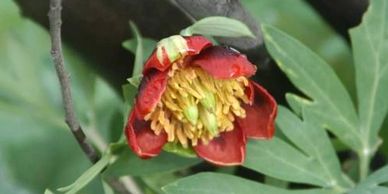San Diego Barcoding Projects
ResMed - Corporate Engagement

San Diego is an advanced life sciences research and innovation hub. ResMed Inc. stepped up as the first corporate sponsor of SDBOL and is engaged in an ongoing weekly flying insect biodiversity survey at its corporate headquarters. The two hectare urban industrial site has produced over 15,000 insect specimens, including 1000 putative insect species in 19 families and 182 species new to BOLD. See video here.
San Diego County Plant Atlas Barcoded

SDBOL achieved the first complete DNA barcoding of a global hotspot regional flora—the San Diego County Plant Atlas—at the San Diego Natural History Museum. Data from a synoptic collection of 2600 plant specimens were added to a growing regional DNA barcode database. Funding provided by ResMed, Inc., the Hattie Ettinger Conservation Fund at the San Diego Foundation, Consulate of Canada in San Diego, and SDBOL. The U.S. Geological Survey already used the database for a diet analysis of the endangered Pacific pocket mouse.
San Dieguito River Park Insect Survey

26,000 specimens were collected in a 62-km coast-to-crest Malaise trap transect across San Dieguito River Park. Of the 2,656 species sequenced, 1,371 (52%) are known only from this study in the Barcode of Life Database (the first genetic information for these taxa). The San Dieguito River Park and Conservancy, along with scientists at UCSD, the San Diego Zoo Institute for Conservation Research, and the Biodiversity Institute of Ontario are doing this as part of the worldwide effort to document the earth’s biodiversity. SDBOL also facilitated UCSD’s and BOLD’s NSF-funded collegiate Student Data Portal for DNA barcoding. Read more.
Barcoding the Mushrooms of San Diego
Volunteers with the San Diego Mycological Society have been documenting the mushrooms growing in our region since 1997 and plan to add this knowledge to the International Barcode of Life (iBOL). So what began a fun way for local mushroom enthusiasts to get together grew into a science project documenting some of the 3000 types of mushrooms found in California. Mushrooms produce medically active compounds such as antibiotics, anti-cancer drugs, cholesterol inhibitors and immunosuppressants.
Catalog of Life @ the San Diego Public Library

The San Diego Public Library, in partnership with SDBOL and LifeScanner recruited citizen scientists to develop a local Catalog of Life as part of iBOL (Press Release). Kids signed out collecting kits from a local library and collected insect specimens that were DNA barcoded at the Centre for Biodiversity Genomics. Insect traps were also placed on select library roofs. Results from the first set of kits are now available here. New records have been identified already, generating new discoveries in this internationally recognized biodiversity hotspot. Check out this fun video made by one of the children who participated!
San Diego Biodiversity Project

This National Science Foundation-funded project aims to incorporate authentic research into the biology curriculum at the University of California, San Diego (UCSD). Students generate novel information - species barcodes - that they communicate to the larger research community through the Barcode of Life Database (BOLD). SDBOL facilitated the UCSD and BOLD Student Data Portal (BOLD-SDP). This platform provides instructors and students with the tools necessary to make contributions to the DNA barcode library used for identifying species.
Copyright © 2019 San Diego Barcode of Life - All Rights Reserved.